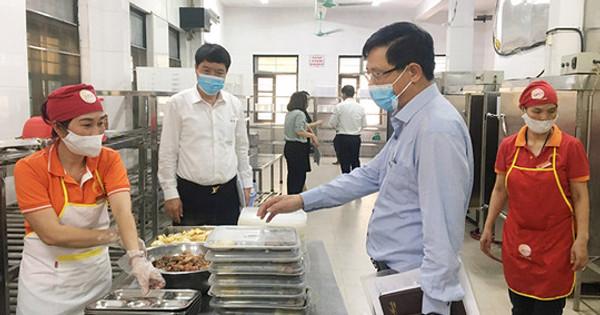In a stern directive issued on May 3, 2024, Vietnamese Prime Minister Pham Minh Chinh demanded stricter enforcement of food safety regulations following a series of mass food poisoning incidents, with the latest case being in the southern province of Dong Nai.
The Dong Nai incident, which left nearly 500 people hospitalized, underscores the significant public health and economic concerns posed by inadequate food safety measures in Vietnam.
A Growing Public Health Threat
Foodborne illnesses are a prevalent public health concern in Vietnam. In 2023 alone, the country recorded over 125 outbreaks affecting more than 2,100 people and causing 28 deaths, reflecting an upward trend compared to previous years.
The source of the Dong Nai poisoning was traced back to Bang bakery, a local establishment selling bánh mì, a type of Vietnamese baguette filled with various ingredients. The bakery's owner disclosed using homemade ingredients, including pate, pickles, and sauce, raising concerns about hygiene standards during preparation.
Economic Impact of Food Poisoning
While the immediate focus lies on ensuring the well-being of those affected, foodborne illness outbreaks also carry significant economic burdens.
Beyond the direct medical costs associated with treating patients, these incidents can lead to lost productivity due to worker absenteeism. In a country like Vietnam, with a growing emphasis on tourism and food exports, ensuring food safety is not just a public health issue but also an economic imperative.
A study by the United States Department of Agriculture (USDA) estimates that foodborne illnesses cost the US economy $15.6 billion annually. While direct data for Vietnam is likely lower due to the country's income level, the economic impact of food poisoning outbreaks can be substantial.
The costs associated with medical care, lost productivity, and potential damage to Vietnam's reputation as a tourist destination can be significant.
Strengthening Food Safety Measures
Prime Minister Chinh's directive emphasizes several key measures to improve food safety in Vietnam. These include stricter enforcement of food safety regulations, with the government likely intensifying inspections of food establishments and imposing stricter penalties for violations.
There will also be enhanced scrutiny placed on licensing procedures, particularly for food processing businesses like Bang bakery, aimed at ensuring adherence to hygiene standards.
Additionally, heightened public awareness campaigns on food safety practices, targeting both consumers and food handlers, are expected.
The Road Ahead
The Vietnamese government's response to the recent food poisoning incident reflects a growing recognition of the importance of food safety.
While implementing the measures outlined in the Prime Minister's directive will require sustained effort, it is a crucial step towards safeguarding public health and protecting Vietnam's economic interests.
Looking beyond the immediate crisis, Vietnam needs a multi-pronged approach to ensure food safety. This includes investing in infrastructure to upgrade refrigeration and storage facilities throughout the food supply chain, an essential aspect of minimizing spoilage and contamination risks.
Promoting international best practices in food handling and hygiene across all levels of food production and distribution is crucial.
Finally, regularly reviewing and updating food safety regulations to reflect evolving risks and scientific advancements is necessary to maintain robust safeguards.
By prioritizing food safety, Vietnam can create a healthier environment for its citizens, protect its tourism industry, and ensure the long-term sustainability of its food production sector.









 Google translate
Google translate